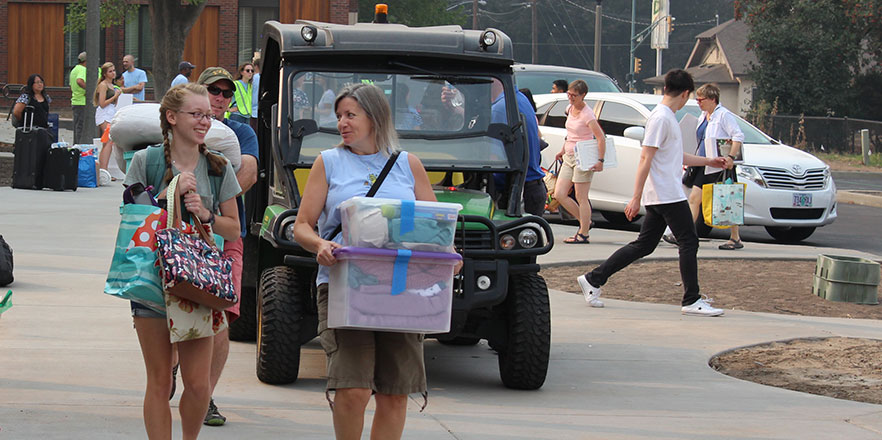Preparing Your Student for College

From the moment they arrive on campus, your student will explore new subjects, meet new people and begin the process of becoming an independent college student. Although being at college doesn’t mean they no longer need their families, your student will need different things from you now than they have before. Your influence remains strong, and it’s important for you to stay connected and involved.
Have hard conversations now
You still have some work to do before sending your student to Whitman in August. Research has shown that students who have had adults in their life talk to them about making smart choices around drugs, alcohol and sex are less likely to exhibit risky behavior in college.
Remember that college is a time for exploration and new experiences. You want to help them explore healthy options and make mature choices.
Have you talked with your student about drinking and drugs? Recreational marijuana is legal in Washington, but not permitted on Whitman’s campus. Drug use or underage drinking is a violation of the student code of conduct and could result in disciplinary action. But more importantly, drug use and drinking could put your student at risk physically, emotionally or academically. Talk with them honestly about your experience with substances, and let them know that they can talk to you about pressure they may be facing.
Sex and consent are also major issues for college students. Sexual harassment and violence are absolutely prohibited. We want our campus to be safe for all students. Talk to your student about what consent means, how to know if they are in a risky position, and tactics for staying safe.
All incoming students are also required to take online trainings on substance use, healthy relationships and sexual activity. Your student will receive announcements about these trainings in their email.
Your student will be taking risks and making decisions. Many risks can lead to positive growth, such as tackling a new subject area, joining a club or applying for a scholarship. Offer support but don’t be afraid to let your student stumble as they take risks. We want students to say no to risks that are unsafe, but to not shy away from risks that challenge and inspire them.
Communicating with your student
As students begin their college life, it’s common for them to stretch into their independence by communicating less with home. However, students may also start to feel cut off from support structures and struggle with homesickness.
You can help support your student — and give them more freedom — by setting a schedule for communication. Maybe you’ll have a weekly phone check-in, text every few days or write letters. Whatever your favorite mode for communicating with your student is, be sure you use it as a tool to help them.
Try to balance your conversations between life on campus and what’s happening at home. Ask questions to help develop ideas rather than offering tips how to “fix things” for your student. Students build resilience and confidence when they can facilitate success by figuring things out for themselves.
Developing responsibility
Parents and parental figures are an important key to help their student develop as a confident, independent and autonomous individual.
You can help your student develop resilience, autonomy and confidence in themselves by supporting them and believing in their ability to make good decisions. You can help your student develop responsibility by encouraging them to seek out solutions to their problems. Ask them what they think they should do to fix it. What have they tried so far? Who have they talked to on campus? You can use this book to advise them where they might start, but they need to seek out the solution themselves. This will empower them to become an independent adult.
Be open to new perspectives
While attending college, your student might be exposed to ideas or perspectives that are different than your own. College is meant to foster different perspectives and expose students to broader and diverse ways of thinking and being. This can be challenging for students and their families. At Whitman, we teach students the importance of being open to new ideas, thinking critically and challenging their beliefs, but also how to engage in respectful dialogue. As family members, it is important to also be open to new ideas and reserve judgment. This will help your student come to their own conclusions and increase their self-confidence.
If you feel that a student is in immediate danger, please contact the Dean of Students Office at 509-527-5158 or, if it is after hours, call campus security at 509-527-5777.